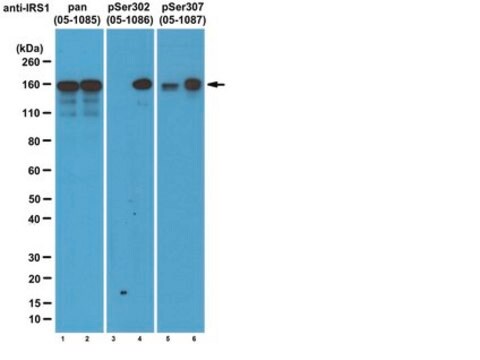I5278
Insulin-Like Growth Factor Binding Protein-3 human
recombinant, expressed in NSO cells, lyophilized powder, suitable for cell culture, ≥95% (SDS-PAGE)
Synonym(s):
IGF Binding Protein-3, IGFBP-3
About This Item
Recommended Products
biological source
human
Quality Level
recombinant
expressed in NSO cells
Assay
≥95% (SDS-PAGE)
form
lyophilized powder
potency
0.01-0.25 μg/mL
mol wt
29 kDa
packaging
pkg of 25 μg
storage condition
avoid repeated freeze/thaw cycles
technique(s)
cell culture | mammalian: suitable
impurities
endotoxin, tested
UniProt accession no.
storage temp.
−20°C
Gene Information
human ... IGFBP3(3486)
Biochem/physiol Actions
Physical form
Analysis Note
Signal Word
Warning
Hazard Statements
Precautionary Statements
Hazard Classifications
Acute Tox. 4 Dermal - Acute Tox. 4 Inhalation - Acute Tox. 4 Oral - Eye Irrit. 2
Storage Class Code
3 - Flammable liquids
WGK
WGK 2
Personal Protective Equipment
Regulatory Listings
Regulatory Listings are mainly provided for chemical products. Only limited information can be provided here for non-chemical products. No entry means none of the components are listed. It is the user’s obligation to ensure the safe and legal use of the product.
PDSCL
Deleterious substance
ISHL Indicated Name
Substances Subject to be Indicated Names
ISHL Notified Names
Substances Subject to be Notified Names
JAN Code
I5278-25UG-PW:
I5278-VAR:
I5278-BULK:
I5278-25UG:
Certificates of Analysis (COA)
Search for Certificates of Analysis (COA) by entering the products Lot/Batch Number. Lot and Batch Numbers can be found on a product’s label following the words ‘Lot’ or ‘Batch’.
Already Own This Product?
Find documentation for the products that you have recently purchased in the Document Library.
Our team of scientists has experience in all areas of research including Life Science, Material Science, Chemical Synthesis, Chromatography, Analytical and many others.
Contact Technical Service



